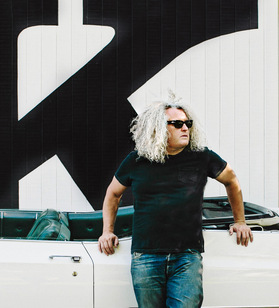It's been three and a half decades since Chateau Ste. Michelle opened its showplace winery on the former Stimson estate in Woodinville. The idea, almost revolutionary at the time, was that it would become a tourist destination. "Wineries are just factories," the snobs intoned. "You wouldn't leave the house to visit a toaster production line in South Seattle, would you?" Ah, well, turns out the snobs were wrong. Over 100 wineries now fill the Sammamish River Valley, a few of them having made gestures toward their agricultural roots by planting a symbolic vineyard, but most firmly in the toaster-factory production facility mode. The difference for the producers is "access to the market" and, for visitors, "free samples." Wine-touring in the Seattle area has come to mean a trip to Woodinville.
 Now we are just weeks from shifting the locus of this paradigm. From the northeastern suburbs to a close-in neighborhood of South Seattle. The state's most innovative winemaker, Charles Smith, is opening a new winery that will house a new, 32,000-square-foot production facility and tasting room, to open in April or May (depending on permits and such). If you go to the Charles Smtih website, you'll be treated to a lively, 54-second commercial for the new space.
Now we are just weeks from shifting the locus of this paradigm. From the northeastern suburbs to a close-in neighborhood of South Seattle. The state's most innovative winemaker, Charles Smith, is opening a new winery that will house a new, 32,000-square-foot production facility and tasting room, to open in April or May (depending on permits and such). If you go to the Charles Smtih website, you'll be treated to a lively, 54-second commercial for the new space.
The video also introduces visitors to Smith's irreverent attitude toward wine, not as an "aspirational" object to be approached with awe but to be consumed, to be drunk, to be enjoyed: "It's just wine," says the site, "Drink it."
Photo by Ali Walker, courtesy of Charles Smith Wines
For all the "aw shucks" and "pshaw" attitude, the Smith empire is extensive. The original K Vintners winery in Walla Walla has spawned a supermarket label, Charles Smith Wines, a brand called Sixto (Chardonnay only), another called Wines of Substance, another called Vino (Pinot Grigio), an Italian-style sparkler called Seco, and a partnership with winemaker Charles Bieler called Charles & Charles. It's no wonder that Smith was named Winemaker of the Year last month by Wine Enthusiast, the first time the honor has been given to anyone in the Pacific Northwest. "Amazing," was Smith's reaction.
Although he had worked as a sommelier in several prestigious California restaurants, he had no grand plan to get into the wine business. Instead, he followed a girlfriend to Denmark and spent the better part of a decade as the manager of rock musicians in Europe. Eventually he made his way back to Washington and took over a tiny wine shop on Bainbridge Island. And after a while, he made a few hundred cases of wine himself. That was 15 years ago. Today, Smith's various labels produce half a million cases.
In the beginning, he worked with Frenchman Christophe Baron; now he has hired Efeste's Brennon Leighton for the Chardonnays, and Andrew Latta in addition to partnering with Bieler. He quickly found critical acclaim, perhaps because Washington vineyards provide an antidote to the pro-California bias of the national press and international wine judges. They cannot deny the quality of Washington grapes ("So amazing," says Smith, "because we can make great wine from every grape: Bordeaux varieties, Burgundies, the Rhone, aromatic whites.").
The defining moment, what he calls his "masterful hands" epiphany, came in 2007. By then, Charles Smith had been in the wine business for over a decade. He had won prizes and accolades, and really no longer needed to prove himself. It was the moment he realized that he had become a master of his chosen craft, that he really did know how to make wine.
And now he's moving into Seattle's oldest commercial neighborhood, Georgetown, "where Seattle has always made things." The architect for his new facility is Tom Kundig, who won awards for his remodel of the tasting room in Walla Walla.
As he adds production capacity, Smith is moving beyond Walla Walla. In fact, many of the vineyards are as close to Seattle as to Walla Walla, so the move to Georgetown makes lots of sense. Much of the Riesling, for example, comes from the Milbrandt brothers' Evergreen Vineyard in the Ancient Lakes region (a newly designated AVA adjoining the Columbia River near Quincy). And just this month the Wine Spectator named Smith's Kung Fu Girl Riesling to its annual list of the world's top 100 wines.
Leave a comment